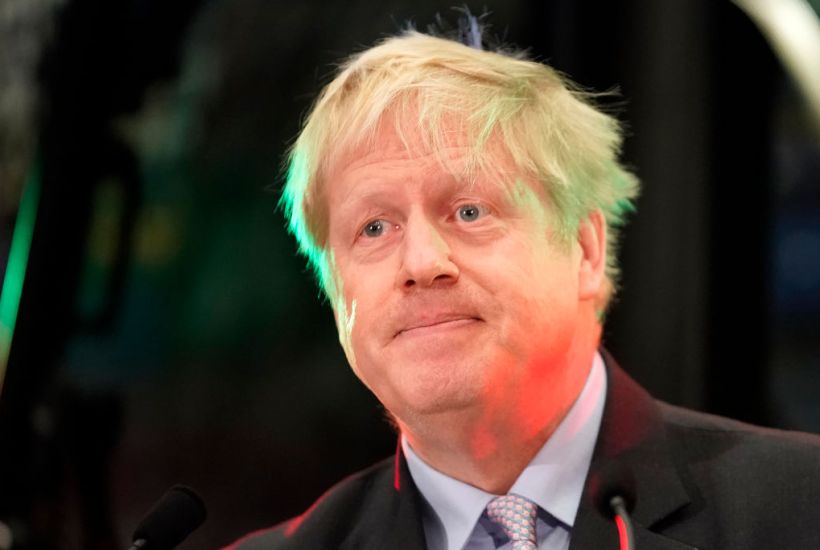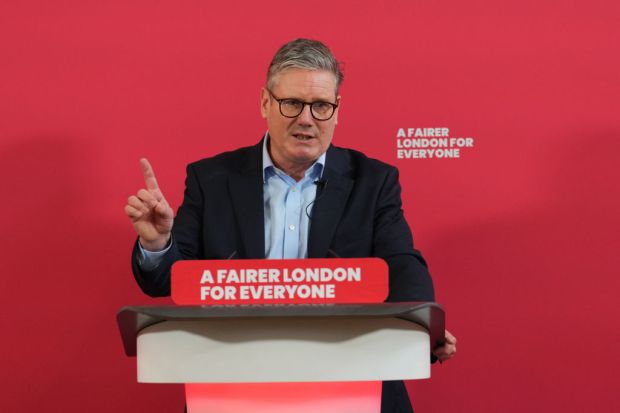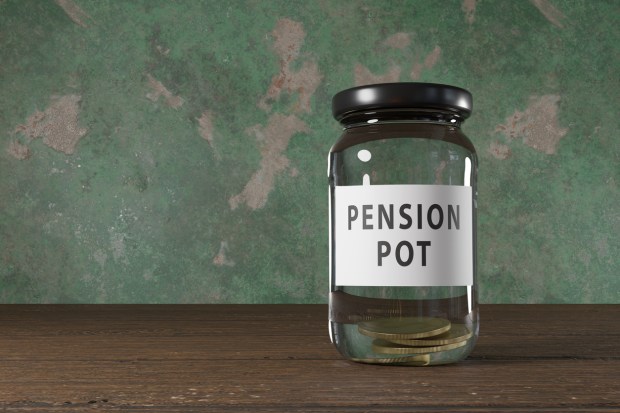The current Westminster consensus that Boris Johnson is the next Tory leader and prime minister raises all sorts of thoughts. Among them is to speculate about the sheer terror this consensus should strike in the man himself, given that Westminster consensus has been wrong about basically everything in the last three years.
For what it’s worth, I also think Johnson is the favourite to replace Theresa May, but I also thought Remain would win the referendum, that May could never be PM, and that she would win her general election with an increased majority. I suspect most of the people now sagely tipping Johnson as a dead cert made similar predictions.
But we are where we are, and so all the chat around the Commons is about prime minister Boris Johnson. Would he govern as a reckless populist, delighting the Tory membership by driving Britain out of the EU without a deal? Or would he carry out a “Nixon to China” reverse-ferret, pivoting to a softer Brexit position by way of a second referendum or even revoking Article 50 and starting again?
Rachel Sylvester’s column in the Times today is vital reading here, setting out several of the Theories of Boris that are being discussed among his Westminster colleagues.
A central theme of those conversations is that Johnson is a man wholly without loyalty: just because the Tory membership made him leader, some say, that doesn’t mean he’d feel bound to give them what they want on Brexit.
Another observation you hear, over coffee in the Commons and on WhatsApp chats, is that while Johnson feels no sense of obligation, he does feel pressure. He is susceptible to – and sensitive to – arguments that he has abandoned the cosmopolitan, open, liberal, positive politics that made him Mayor of London in favour of small-minded nativism. It’s a matter of public record that several members of the Johnson family take a starkly different view on Brexit. Only someone truly heartless would be able to shrug that off entirely, and I do not believe Boris Johnson is so cold. He wants to be liked.
What does he really believe? What does he really want from Brexit?
The chatter about his potential premiership should focus attention on what might be the most important thing he ever wrote, and maybe the most consequential document of the post-Brexit age.
This is the column that Johnson filed to the Daily Telegraph on Sunday June 26th and which the paper printed the following day under the headline “I cannot stress too much that Britain is part of Europe – and always will be”.
That column surprised a lot of people, not least the editors of the Telegraph: we’d expected our star columnist to take the week off to focus on the fall-out of the referendum vote he’d won a few days before and the subsequent resignation of David Cameron. But no, Johnson filed, and what a column it was.
Some key extracts:
“This was a seismic campaign whose lessons must be learnt by politicians at home and abroad. We heard the voices of millions of the forgotten people, who have seen no real increase in their incomes, while FTSE-100 chiefs now earn 150 times the average pay of their employees. We must pursue actively the one-nation policies that are among David Cameron’s fine legacy, such as his campaigns on the Living Wage and Life Chances. There is no doubt that many were speaking up for themselves.”
Here, Johnson (correctly) reads the Leave vote as being at least in part a comment on the UK’s economic settlement, and proposes an answer that includes wage growth and social mobility.
“There were more than 16 million who wanted to remain. They are our neighbours, brothers and sisters who did what they passionately believe was right. In a democracy majorities may decide but everyone is of equal value. We who are part of this narrow majority must do everything we can to reassure the Remainers. We must reach out, we must heal, we must build bridges – because it is clear that some have feelings of dismay, and of loss, and confusion.”
Yes, in the aftermath of the referendum Boris Johnson was calling for compromise between Leave and Remain, noting that Leave won only a “narrow majority” and it was vital to maintain the backing of the wider electorate for what came next. Compare and contrast that with the brutal majoritarianism (“Crush the Saboteurs”) of what followed.
And the most important section of an important text:
“I cannot stress too much that Britain is part of Europe, and always will be. There will still be intense and intensifying European cooperation and partnership in a huge number of fields: the arts, the sciences, the universities, and on improving the environment. EU citizens living in this country will have their rights fully protected, and the same goes for British citizens living in the EU.
British people will still be able to go and work in the EU; to live; to travel; to study; to buy homes and to settle down. As the German equivalent of the CBI – the BDI – has very sensibly reminded us, there will continue to be free trade, and access to the single market. Britain is and always will be a great European power, offering top-table opinions and giving leadership on everything from foreign policy to defence to counter-terrorism and intelligence-sharing – all the things we need to do together to make our world safer.”
What sort of prime minister would the author of that column have been? What sort of Brexit would he have sought? Remember, back in that surreal summer of 2016, a fragile consensus around the single market was starting to coalesce. People on all sides at Westminster were edging towards accepting that narrow verdict should be implemented by leaving the EU but remaining in or closely aligned to the Single Market.
Some variant on the Norway option was – at least in terms of British politics – a viable option that summer. Had he become prime minister then, would Boris Johnson have steered Britain towards that outcomes? It is one of the great What Ifs? of recent political history.
Yet the author of that column didn’t become PM, because Michael Gove said he shouldn’t get the job. And to hear some people tell the story, that column was a central part in Gove’s decision to go against Johnson. They say that the column crystallised all the doubts that true Brexit believers had harboured about Johnson, that he was inclined to surprise even his friends and that, crucially, he didn’t really want to cut ties with the EU, that he would accept a half-way house form of exit.
So Gove struck, Johnson fell and May rose. As the summer of 2016 ended, she shattered that emerging consensus around the single market by establishing the end of free movement and the end of ECJ jurisdiction as the sine quibus non of Brexit. We are still living with the consequences of May’s actions then. Actions that were, in part, possible because Johnson wrote a column suggesting a very different approach to Brexit.
Maybe Johnson will become PM this time, and we’ll find out what, if anything, of that consensual, liberal agenda he set out in that column he would enact in office. Or maybe the same doubts that Gove had when he read that column will persuade other Tory Brexiteers they can’t trust Johnson to deliver a “real” Brexit. Either way, the column that surprised so many people in the sunny days of June 2016 deserves to be closely read again now.
Got something to add? Join the discussion and comment below.
Get 10 issues for just $10
Subscribe to The Spectator Australia today for the next 10 magazine issues, plus full online access, for just $10.




















Comments
Don't miss out
Join the conversation with other Spectator Australia readers. Subscribe to leave a comment.
SUBSCRIBEAlready a subscriber? Log in